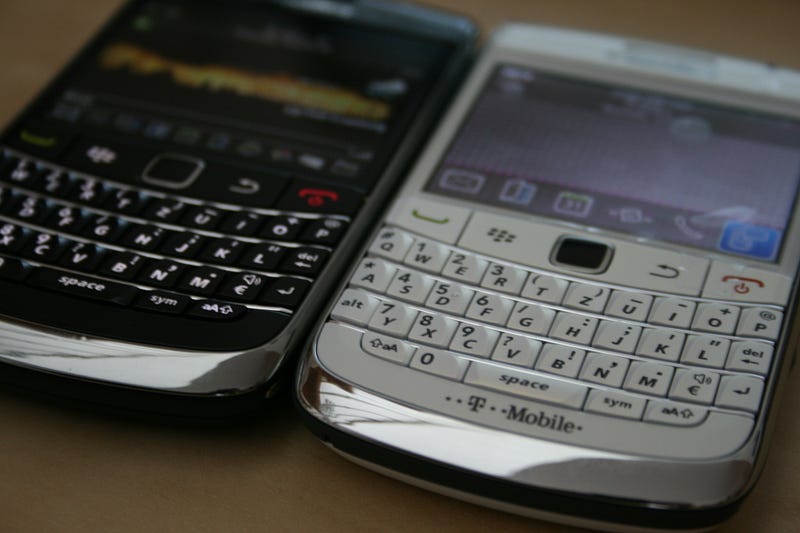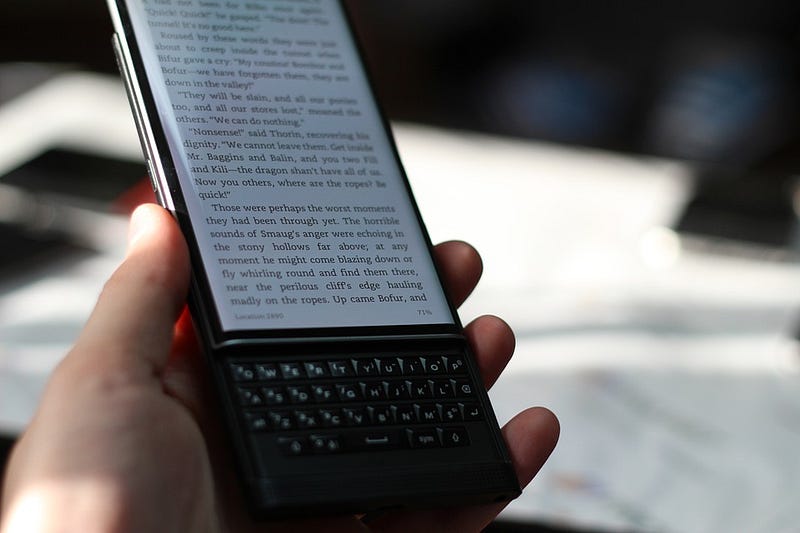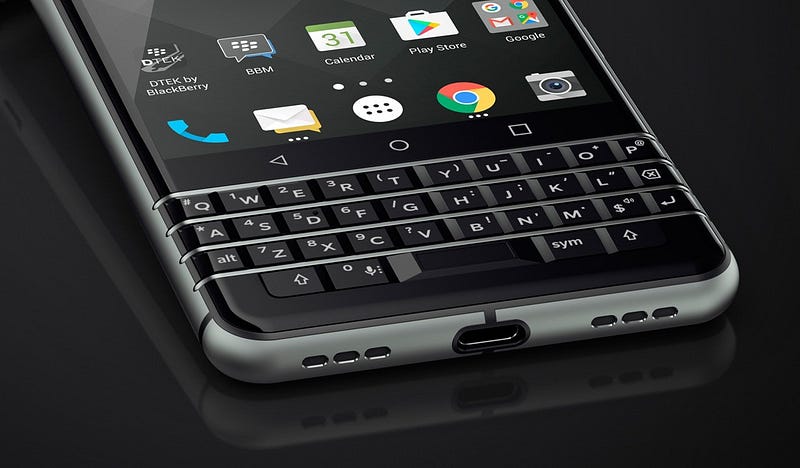A Nostalgic Tribute to BlackBerry: Remembering the Keyboard Era
Written on
Chapter 1: The Golden Age of BlackBerry
In the era of smartphones, few devices were as iconic as BlackBerry. As support for BlackBerry OS dwindles, it's time to reminisce about a time when the world craved keyboards in their mobile devices.

My first smartphone was the Nokia E71, a device I cherished so deeply that I later upgraded to the Nokia E72. Released in 2008 and 2009, these models caught my interest when I was skeptical of the iPhone and preferred something less mainstream. Yet, it was hard to ignore how closely the design mirrored that of a BlackBerry.
At its peak, BlackBerry was a formidable force in the budding smartphone market. They were trailblazers in mobile email and the overall concept of the smartphone. However, a series of missteps highlighted their lack of foresight and hubris, ultimately leading to their decline. Today, as Apple and Samsung dominate the smartphone landscape, BlackBerry's legacy has faded into the background. With the discontinuation of proper support for BBOS devices, now is an opportune moment to reflect on how this company transformed our mobile experiences, only to be eclipsed by competitors due to their failure to innovate.
The Allure of the Keyboard

The first BlackBerry I owned was the Bold 9000. At the time, it seemed quite large, despite being smaller than today’s compact devices like the iPhone SE. The Bold 9000 exuded luxury with its tactile scroll wheel and leather back cover, giving it an air of sophistication rarely found in contemporary smartphones. However, the true standout feature was its full QWERTY keyboard.
BlackBerry's keyboards became synonymous with their brand, offering unparalleled efficiency for sending emails and texts. After experiencing the mushy keys of previous phones, transitioning to a BlackBerry keyboard was a revelation. Once you got accustomed to it, switching to anything else felt impossible; hence the nickname “crackberries” emerged.
Nonetheless, by the time I acquired my first BlackBerry, the writing was already on the wall. The iPhone had launched, fundamentally altering consumer perceptions of smartphones. Yet, as a devoted BlackBerry user, I believed the keyboard was a compelling reason to stay loyal. BlackBerry attempted to innovate with devices like the Torch 9800 and Passport, integrating touchscreen elements while preserving their keyboard legacy. Unfortunately, these efforts failed to resonate with the broader market, as the company remained tied to its established identity.
A Struggle to Adapt

The iPhone disrupted the industry. Prior to its introduction, BlackBerry had been thriving against competitors like Palm Treo and Windows Mobile devices, which paled in comparison. The iPhone demonstrated that smartphones could diverge from the BlackBerry mold, prompting manufacturers like Samsung and HTC to embrace more innovative designs.
Conversely, BlackBerry remained fixated on its identity as the keyboard-centric company. They overlooked the advantages of their superior messaging service, BlackBerry Messenger, renowned build quality, and robust security features—elements that could have thrived in a touchscreen model. However, their stubbornness hindered necessary adaptation.
This inflexibility ultimately led to the downfall of their hardware business. By the time BlackBerry sought to adopt modern smartphone designs, the iPhone had already established dominance. Their attempt to introduce the BlackBerry Storm, with its clickable touchscreen, only underscored their reluctance to abandon physical buttons. The company oscillated between touchscreen and keyboard devices, but the market had moved on.
Eventually, BlackBerry pivoted to Android-based phones like the Priv and Key models, which suffered from poor support and mediocre hardware. Despite these efforts, BlackBerry struggled to regain relevance, and years have passed since a true BlackBerry device graced the market. The new firm, Onward Mobility, holds the rights to the BlackBerry brand but has repeatedly missed launch deadlines, causing many fans to resign themselves to the brand's legacy.
BlackBerry’s Enduring Influence

While it's tempting to remember BlackBerry as a casualty of the iPhone revolution, it's essential to celebrate its pioneering spirit. Before BlackBerry, mobile phones were primarily for calls and texts. They redefined the smartphone concept, showing that phones could do much more. BlackBerry transformed mobile email, set the stage for instant messaging, and established benchmarks for device security.
For a time, BlackBerry was a cultural phenomenon, with its iconic keyboard as its hallmark. The excitement surrounding BlackBerry mirrored the fervor associated with the iPhone, evoking feelings of exclusivity and community among its users. Both brands prioritized security and proprietary systems, alongside an engaging messaging platform. BlackBerry's rise was remarkable, but their comfort at the top became their downfall—a lesson that resonates throughout tech history.
When I think of BlackBerry, I envision a minimalist interface characterized by efficiency—qualities that may not have been glamorous but were deeply valued by many. Ultimately, however, the allure of modern smartphones, with their sleek aesthetics, left BlackBerry behind. Although I admired its simplicity, the market's shift towards extravagance sealed its fate. So here's to an innovator that paved the way for mobile technology; may we cherish the brief era when we were all captivated by our crackberries.
The first video titled "Tuesdays Gone" features an acoustic cover by David Sizemore, capturing the spirit of nostalgia and reflection akin to our farewell to BlackBerry.
The second video, "Going Home," is an original piece by My Blue Sky, evoking the emotions tied to the memories of BlackBerry's golden years.